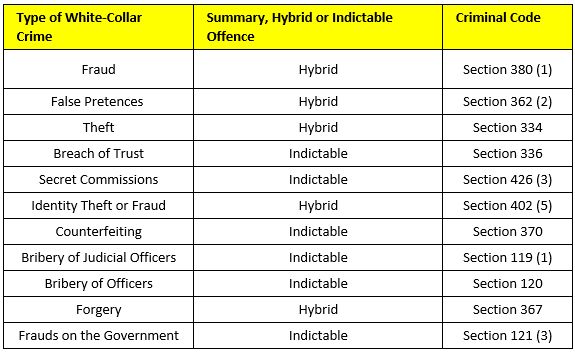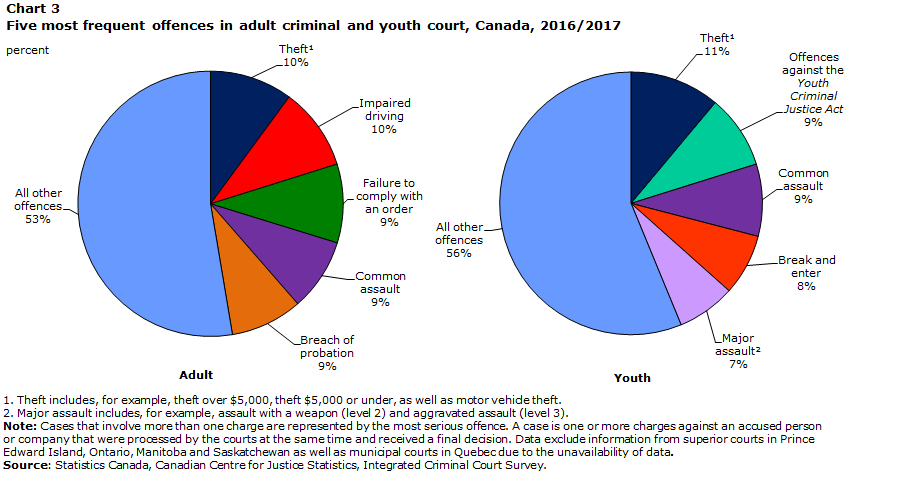November
24
10 Types of Criminal Offences
Curricular Indicators:
- Discuss what constitutes a crime according to the Criminal Code of Canada (1985)

- Compare the types of offences (indictable, summary, and hybrid offences) in the Criminal code and identify in a variety of cases.
- Identify factors to ensure the judicial process is fair to the accused (presumption of innocence, right to jury, trial of peers)
- Differentiate between federal penitentiaries and provincial correctional facilities, including various levels of security within, length of sentence and programs available (substance abuse intervention, sex offender treatment, literacy development, work experience, treatment courts).
Some offences described in the Criminal Code of Canada are on the extremes of less and more severe crimes. Most crimes listed are hybrid, meaning the pros

ecution can decide whether to move forward with a charge being more consequential or less, depending on the history of the individual. The Criminal Code also specifies what the minimum and maximum penalties are for each offence, allowing for some fairness in how the law is applied.
Types of Criminal Charges:
Cases to evaluate:
Hybrid Offence Case Study – Section 267 Criminal Code: Assault Causing Bodily Harm
How Sentences are Carried Out After Conviction
Case Study Group Discussions:
- Consider carefully the following cases and watch to pull out what you think are the relevant details of each case.
- You can audio record your group’s thoughts/summary after reading/sharing together.
- aalblm_02-05a case study of search/seizure rules (reasonable grounds)
- aalblm_02-04a case study of suspected DUI offender approached in his driveway (right of privacy)
- aalblm_01-09a individual sues City of Vancouver for believed excessive use of police force
- aalblm_04-05a – case lists steps related to motive and planning. Determine the threshold of “attempt”
- Case Study R. v. M. school searches and expectation of privacy